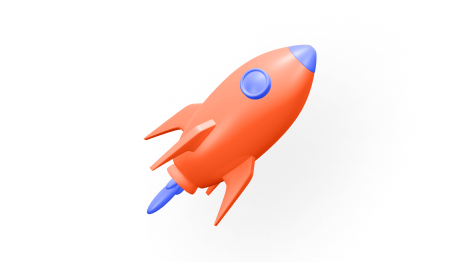
7 main reasons why you are not able to gain desired muscle mass
Is it difficult for you to gain muscle mass even after working out and eating right?
If you don't do it right, you can't gain muscle mass. You make some changes in your lifestyle, train till exhaustion and follow a diet religiously.
So, what do you have to do for lean muscle growth? Gaining muscle mass can be tricky, but it is possible. If your goal is muscle building and getting rid of excess fat, you’ll have to fine-tune your diet and learn exactly what type of workouts to do.
Continue reading to find out the many reasons you’re not gaining lean muscle mass and what you can do about them.
I’ll share some tips and tricks to build muscle mass that are simple and easy to incorporate into your daily workout routine and nutrition plan.
1. Consistent training
Set a realistic goal and plan to hit the gym 3-4 days a week instead of aiming too high to 6 days a week. Gaining muscle is a challenging task and needs consistency. Muscle growth is a slow and steady process. It can only be achieved by making good habits.
As time goes by, you see results and are motivated to do more.
2. Train smart
Resistance training is the best way for muscle hypertrophy. Building muscle requires the sets and repetitions to follow a set pattern. Lifting too heavy or too light would not give desired results.
Muscle hypertrophy can be achieved by lifting heavier weights with lower repetitions to bring changes at a cellular level. This can be achieved by pyramid training which means you start weightlifting with a weight you can easily lift for 10 reps, then move on to heavier weights that you cannot lift for more than 8 reps, 6 reps, and so on.
The bottom line is, if you can’t do more than 6 reps, it’s too much weight. If you can easily do more than 10 reps, you should add more weight.
3. Avoid too much cardio
Doing too much cardio in your workout regimen means you are expending more than your calorie intake. This will make gaining muscle mass nearly impossible.
Of course, doing the right type of cardio is essential to build muscle mass and lose body fat, but your priority needs to be resistance training.
Do cardio sessions once in a while, but don’t do it at the expense of recovery for whatever muscle group you’ve worked on.
4. Take enough protein
To stimulate the growth of muscles, you need an adequate amount of protein. Proteins contain amino acids that are the building blocks of muscle cells. Yet, most people don’t eat the amount of protein they need to stay healthy, let alone build muscle.
Indeed, protein is one of the most deficient macronutrients in diets across the world. People think they consume enough protein but they’re wrong.
The recommendations for protein intake are 1.0 to 1.2 grams of protein per pound of body weight for overall health maintenance. However, in athletes and people who want to build muscle, the body needs 1.3 to 1.5 grams of protein per pound of body weight.
In general, natural food sources and animal proteins tend to be a little cumbersome so it's better to combine them with supplements like whey protein.
5. Eat enough carbohydrates
This might sound strange because fitness experts routinely advise people to cut carbs from their diet. It’s a sticking point with many fitness gurus. So you might be under the impression that eating healthy means cutting carbohydrates because they prevent you from gaining muscle.
However, the truth is that high-intensity weightlifting requires energy, and carbs are the body’s fuel. A low carbohydrate diet can lead to low glycogen levels and impact your athletic performance.
To gain muscle and keep energy levels up, make sure you eat enough carbs. They are crucial to gain strength and repair and build muscle cells. You can work with a registered dietitian if you find you’re not making progress. They will help you find the right amount of carbs to consume daily.
6. Drink enough water
Stay well hydrated else you starve your muscles of a critical nutrient. It should be your priority to fine-tune your health.
Water plays a key role in the transport of nutrients that form protein and glycogen for muscle growth. It is also needed by nerves that control muscles.
How much water should you drink to gain muscle? A good guideline is 50 mL or 1.7 fl. oz. per kilogram of body weight consumed throughout the day. Or aim for 16 cups or a gallon of water.
Also, keep in mind that alcohol is dehydrating. It also suppresses the central nervous system and immune system. Studies have shown that when you drink alcohol, it interferes with protein synthesis pathways as well. This is all bad news if your goal is muscle-building.
7. Get enough sleep
Getting adequate rest is a critical component of healthy functioning!
Sleep is the time when your muscles recover and repair themselves. The levels of human growth hormone are highest when you’re sleeping. Stress hormones are known to break down muscle, and a high-stress hormone level (cortisol) is directly linked to lack of sleep.
When you are sleep-deprived in the long run, it is at the expense of your recovery. This is why it can be impossible to gain muscle if you’re not getting enough rest.
Focus on not only the amount of sleep but also quality sleep.
The Takeaway
Dedication and more frequent trips to the gym are not the only things that will help you with lean muscle growth. You need to pay attention to the full range of nutrition and exercise to increase muscle mass and make gains effectively.
Now that you know the common reasons for not building muscle mass, you can fine-tune your workout, diet, and lifestyle to get the results you want.
Helpful course to Enroll in - Nutrition and supplementation course.
Category
Recent Blog

Why is insulin neede... Read more
July 05,2023
10 Tips for Strength... Read more
August 14,2023
Sample Strength and ... Read more
September 06,2023
Why are some lifters... Read more
September 15,2023
Why do Barbells and ... Read more
September 22,2023
Secret Routine to Bu... Read more
September 26,2023
When to use Insulin,... Read more
September 28,2023
Why lifters should u... Read more
September 29,2023
What is power traini... Read more
October 09,2023
The Future of Fitnes... Read more
October 17,2023
Why Pursue a Fitness... Read more
October 21,2023
Career Paths for Cer... Read more
October 31,2023
Elevating Your Perso... Read more
November 21,2023
Gym Safety Correctiv... Read more
December 26,2023
5 Different Types of... Read more
December 27,2023
Elevate Your Fitness... Read more
December 28,2023
Embark on Your Fitne... Read more
January 24,2024
Mastering Nutrition ... Read more
January 24,2024
Building Strength wi... Read more
January 27,2024
Boost Your Career: B... Read more
January 27,2024
Unlocking Essential ... Read more
February 19,2024
Unlock Your Fitness ... Read more
February 20,2024
Unveiling the Path t... Read more
February 28,2024
How to choose the ri... Read more
February 29,2024
Strengthening Weak S... Read more
March 20,2024
How a Fat Loss and E... Read more
March 27,2024
Transformative Insig... Read more
March 27,2024
The Importance of a ... Read more
April 10,2024
Mastering the Art of... Read more
April 22,2024
Unlocking Your Caree... Read more
April 23,2024
The Evolution of Per... Read more
May 27,2024
Elevate Your Fitness... Read more
May 28,2024
Choosing the Right P... Read more
June 25,2024
Role of Protein in F... Read more
June 26,2024
Career Opportunities... Read more
June 27,2024
How Fitness Certific... Read more
July 29,2024
Building a Successfu... Read more
July 30,2024
Qualities to Look fo... Read more
August 21,2024
How Gym Trainer Cert... Read more
August 28,2024
How Fitness Trainer ... Read more
September 20,2024
The Role of a Person... Read more
September 23,2024
Immunity Boosting Pl... Read more
October 17,2024
How Fitness Trainers... Read more
October 22,2024
Transform Your Fitne... Read more
October 28,2024
Certified vs. Uncert... Read more
November 22,2024
The Role of Nutritio... Read more
November 25,2024
The Importance of Co... Read more
December 28,2024
5 Powerlifting Train... Read more
December 28,2024
How Personal Trainer... Read more
January 24,2025
Essential Online Nut... Read more
January 25,2025
How Personal Trainer... Read more
January 27,2025
5 Immunity-Boosting ... Read more
March 01,2025
What to Look for in ... Read more
March 01,2025
The Impact of a Pers... Read more
March 27,2025
The Benefits of Beco... Read more
March 28,2025



